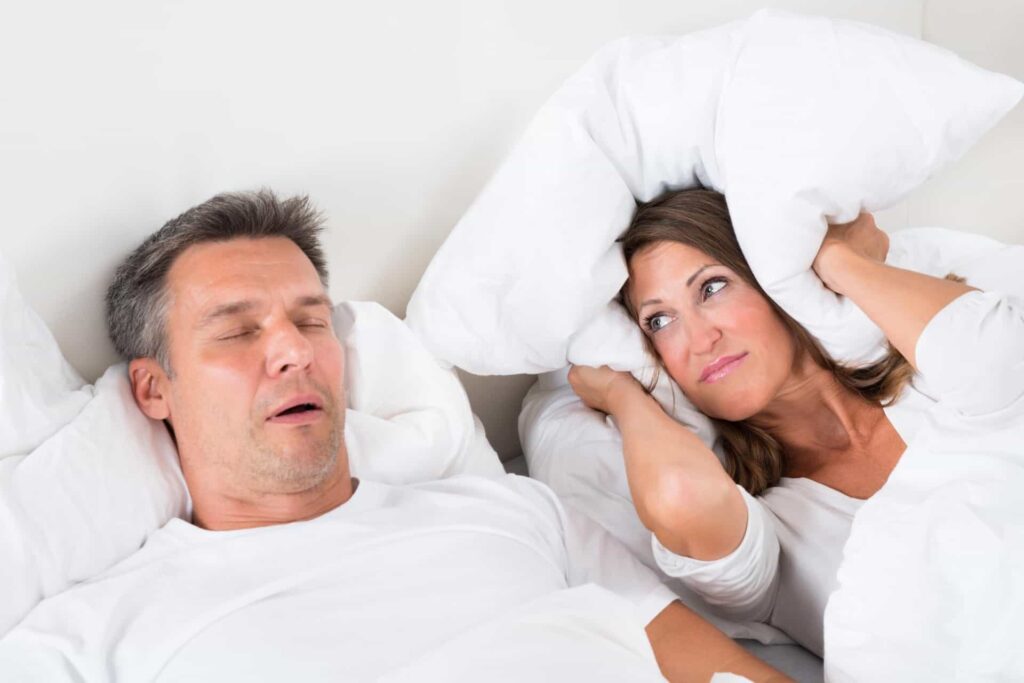Lack of sleep is a serious issue, contrary to what many people thinks about it. Some people experienced involuntary sleepiness while some go through forced sleep deprivation, just to meet up with some tasks or fulfil an obligation – if this just happens once or so, it might really not have a big negative effect on the body system. But it becomes big problem if the sleeplessness is now experienced frequently. There are so many glaring symptoms of sleep apnea or lack of sleep, which most of us would have experienced in one way or another; from the feeling of tiredness, drowsiness, anxiety, headache, short memory, and others as we know them. In this article we will consider if this condition has a potential to cause death.
For those with untreated obstructive sleep apnea (OSA), feeling exhausted all the time is more than simply an annoyance.
Can sleep deprivation be the reason behind the death of a person? Our answer to that is – it depends, it is a Yes and No answer, read on to know more.
In reality, there is only anecdotal evidence that people can pass out and die from staying up for too long. However, a lack of sleep has been linked to a variety of health problems that can decrease a person’s life span, including heart disease, diabetes, and depression.

Going To the Extreme with Sleeplessness.
Small number of people have tried to remain awake as long as possible on purpose, to see what would happen. in almost all the cases none seems to end well. several neuroscientist, and sleep expert have spoken concerning the peculiar side effects of sleep deprivation.
In 2017, anecdotes about the effects of sleep deprivation were shared, including one about a memory experiment in which a small group of students stayed up all night in a campus lab; the following morning, female students in the sleep-deprivation room discovered two football players in the room, giggling hysterically and with lipstick and mascara smeared all over their faces. A clear illustration of the mental and emotional toll a lack of sleep can take.
One night of interrupted sleep is enough to raise stress hormone levels and blood pressure.
The brain’s executive function, including the ability to multitask, pay attention, and remember things quickly, is severely compromised after three nights without sleep. Afterwards, things can only get worse: Decades after staying awake for an unprecedented 11 days as part of an experiment, Randy Gardner reflected on the experience, saying, “I mean, it was weird, where you couldn’t recall stuff, it was almost like an early Alzheimer‘s thing brought on by lack of sleep.” It’s no surprise that the United Nations considers denying someone sleep to constitute torture.
A loss of any amount of sleep is quite detrimental.
Some people who lived on the edge have been killed trying, albeit generally other reasons were at play (mainly industrial doses of caffeine and other stimulant drugs, which almost certainly caused harm themselves). Sleep deprivation, however slight, can have serious consequences.
Experts on sleep say that the switch to daylight saving time is a prime example of anything that might disrupt sleep. There is an average 24 percent rise in heart attacks the day after we lose an hour of sleep by springing forwards once a year. The night we “fall back” and gain an hour of sleep is associated with a 21% decrease in heart attacks. Car accidents, workplace injuries, psychological problems, and even suicides all rise when an hour of sleep is lost.
It’s obvious that missing even an hour of sleep may have serious consequences; think about what would happen if you regularly deprived yourself of sleep.

Compiling a sleep debt
There is this common saying that, “I’ll sleep when I’m dead.” To forego sleep, especially in the name of business, has become a badge of courage despite the obvious drawbacks, it goes against the norms. However, be wary of adopting a “sleep when I’m dead” mentality, as most adults require between 7 and 9 hours of sleep every night to be healthy and perform at their peak.
How will all that sleep deprivation affect you eventually? Diseases such as diabetes, heart disease, melancholy, mood and social difficulties, accidents, low libido, and early onset dementia are only some of the consequences of a weakened immune system. All of these significant problems are associated with insufficient sleep, and they worsen with time.
Untreated sleep apnea can cause the same issue for those who want to sleep, despite their best intentions.
Instead of burning the midnight oil and wasting hours of sleep, people with obstructive sleep apnea experience sleep deprivation every night, losing the equivalent of hours of peaceful sleep in just seconds at a time. Their sleep debt increases as a result of the frequent awakenings they experience. Even worse, these interruptions keep people from entering a deep REM sleep, which is necessary for the body to heal itself while sleeping. They can sleep for 8 hours straight and still feel foggy in the morning, even if just because they aren’t receiving enough deep, restorative sleep.
A sleep study performed at home can reliably detect sleep apnea. Apnea Health guarantees same-day appointment availability and three-week treatment duration.
What does this mean?
In other words, if you’re generally healthy, skipping the occasional night of sleep probably won’t kill you. Maximizing restorative sleep (in addition to maintaining other healthy behaviours) is crucial for a long, healthy, and happy life, but persistent sleep loss can knock you out of the otherwise healthy category in the longer run.

